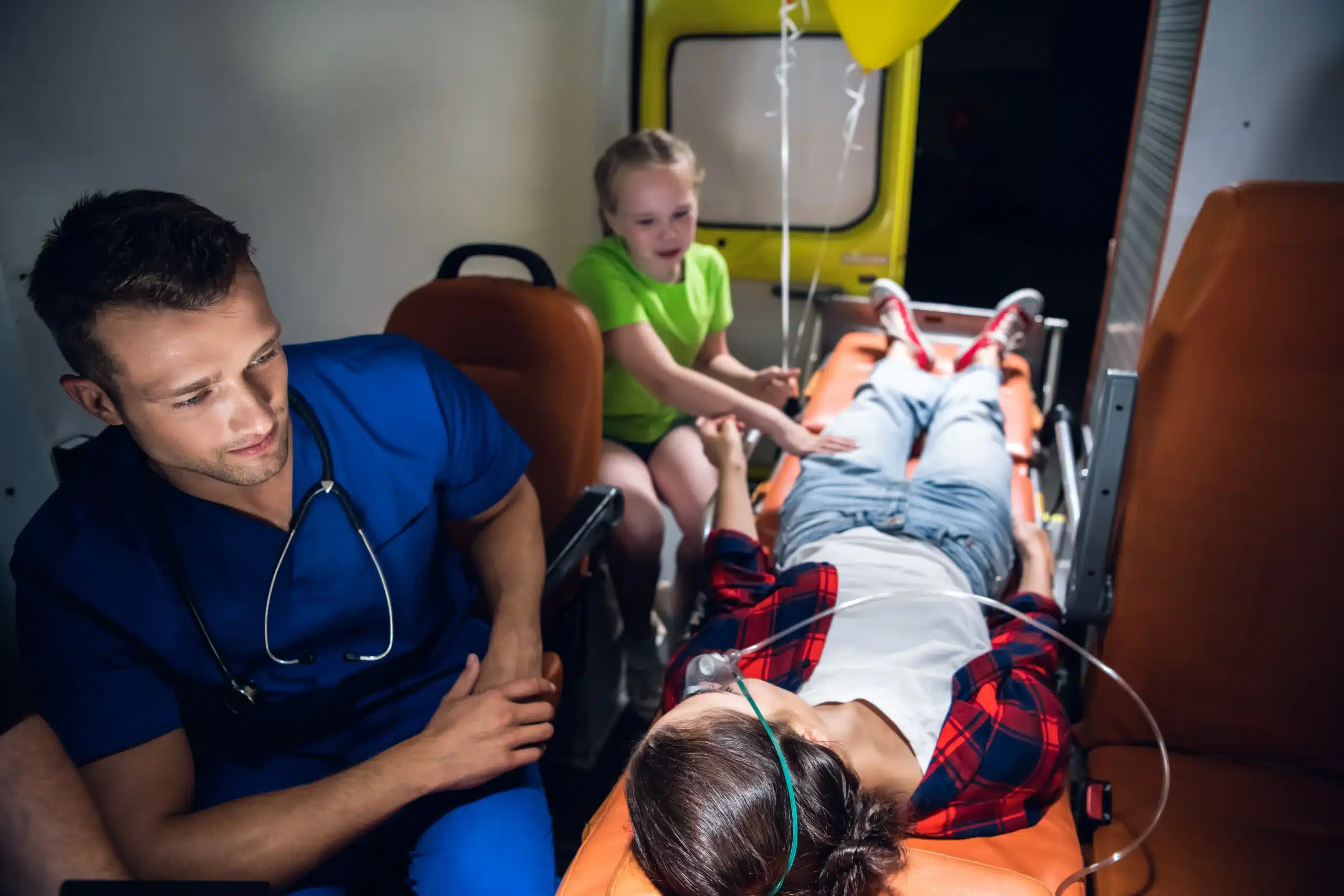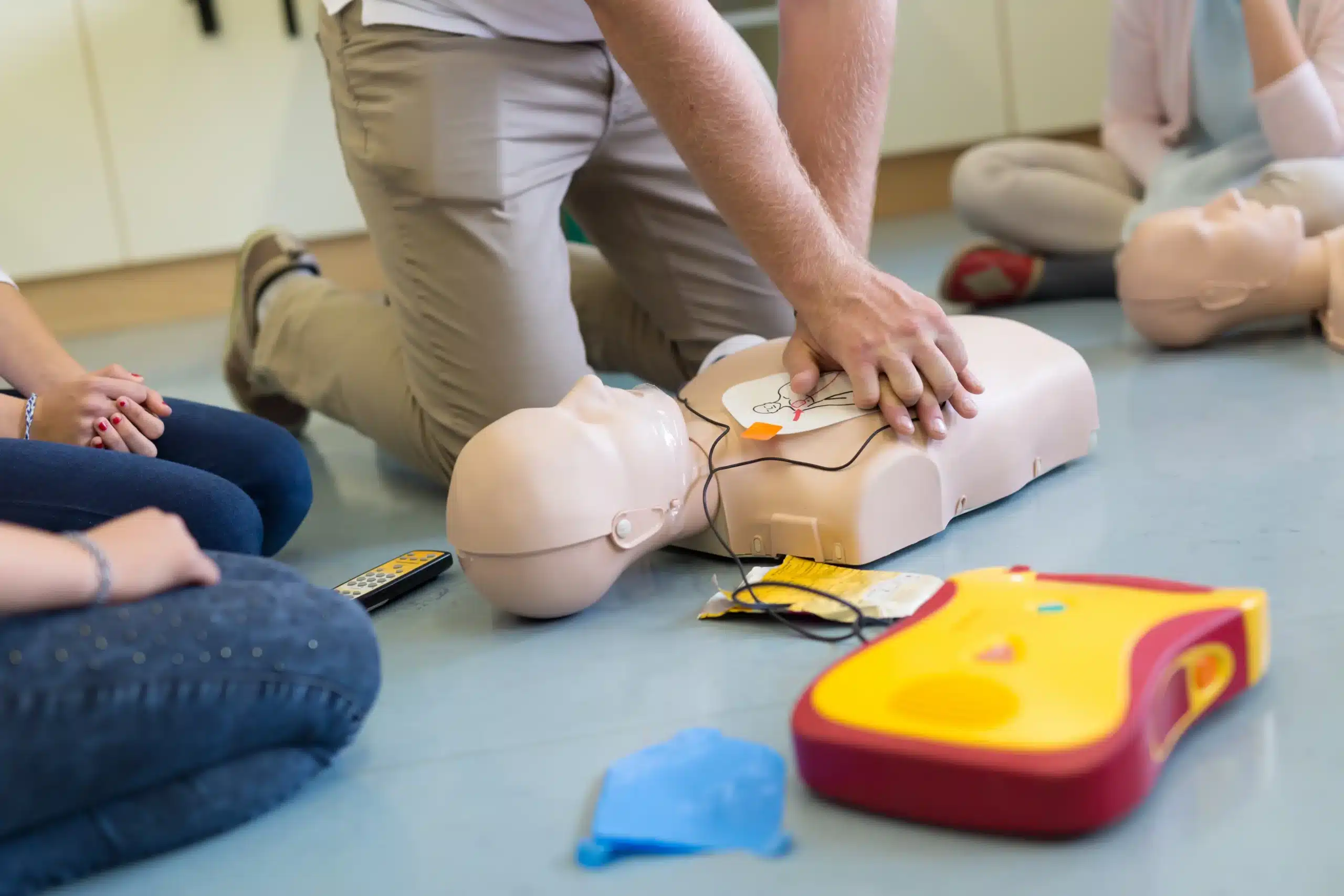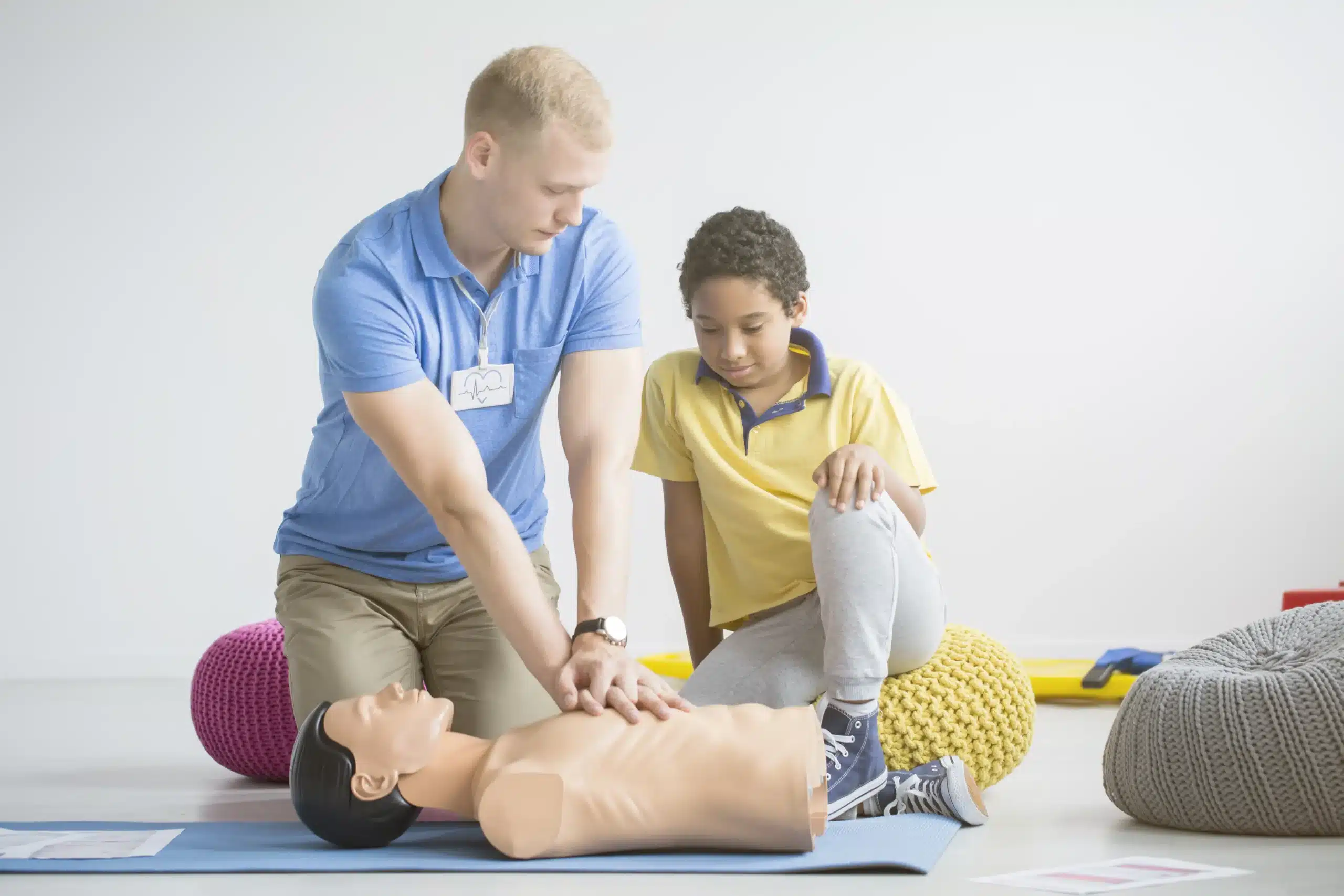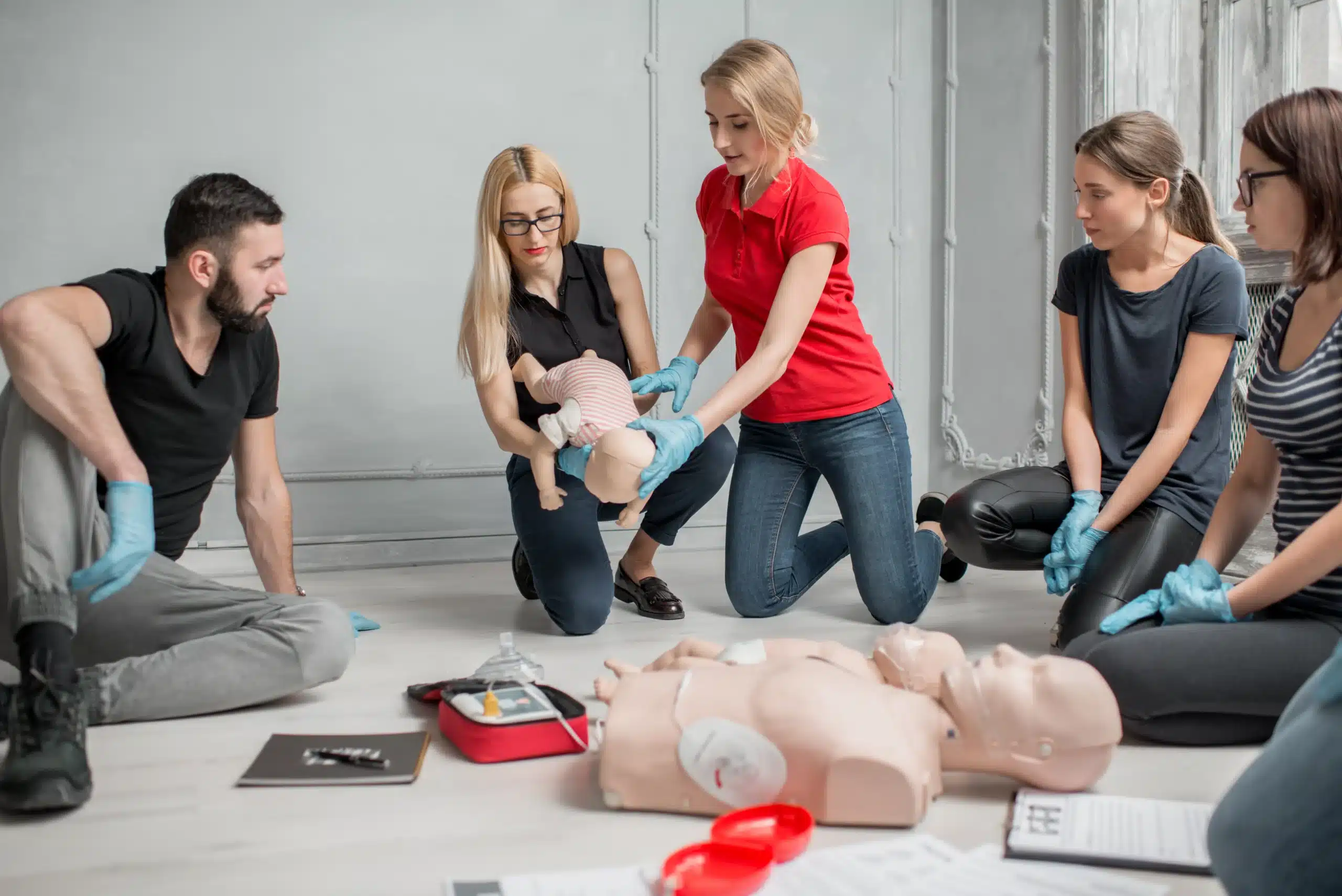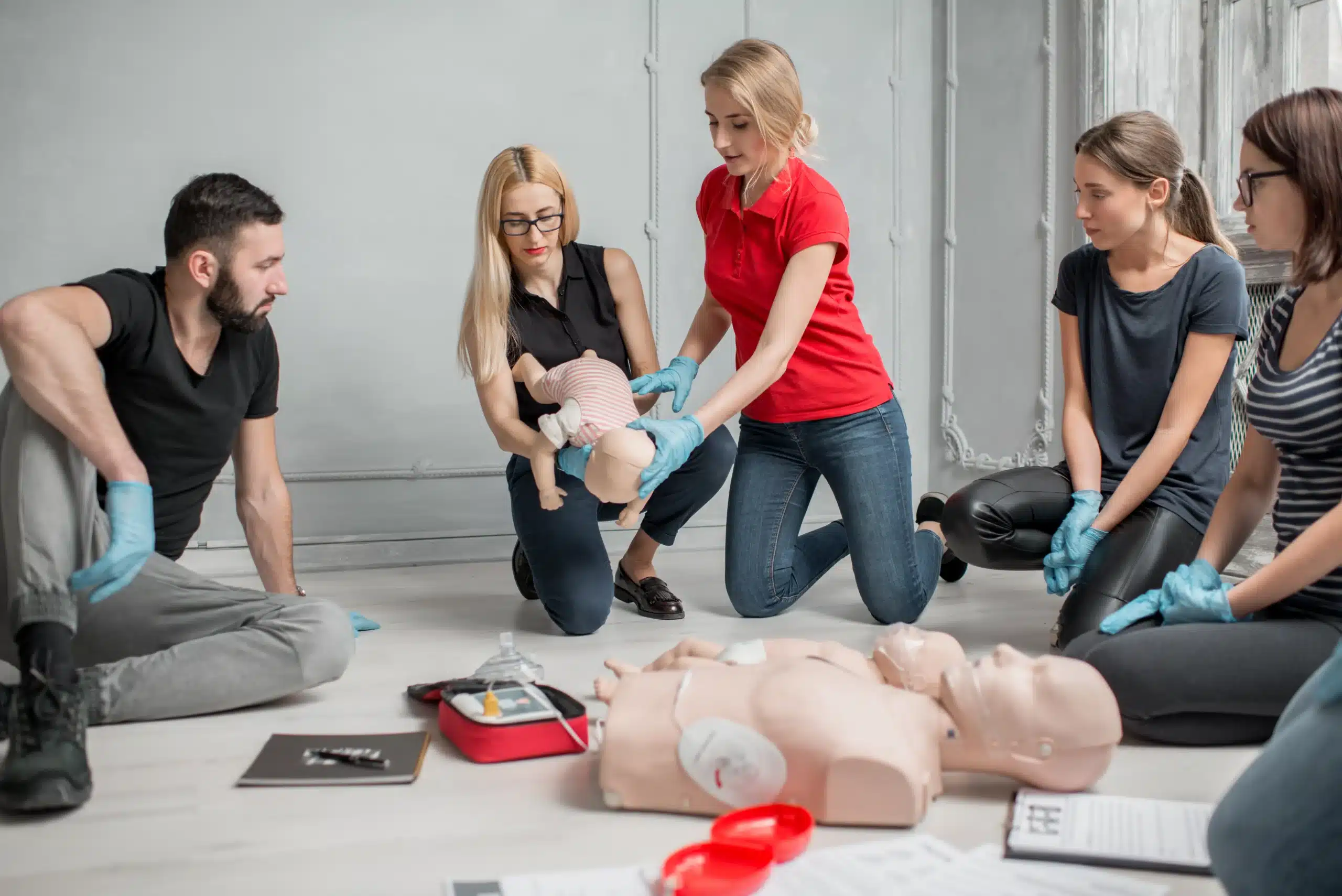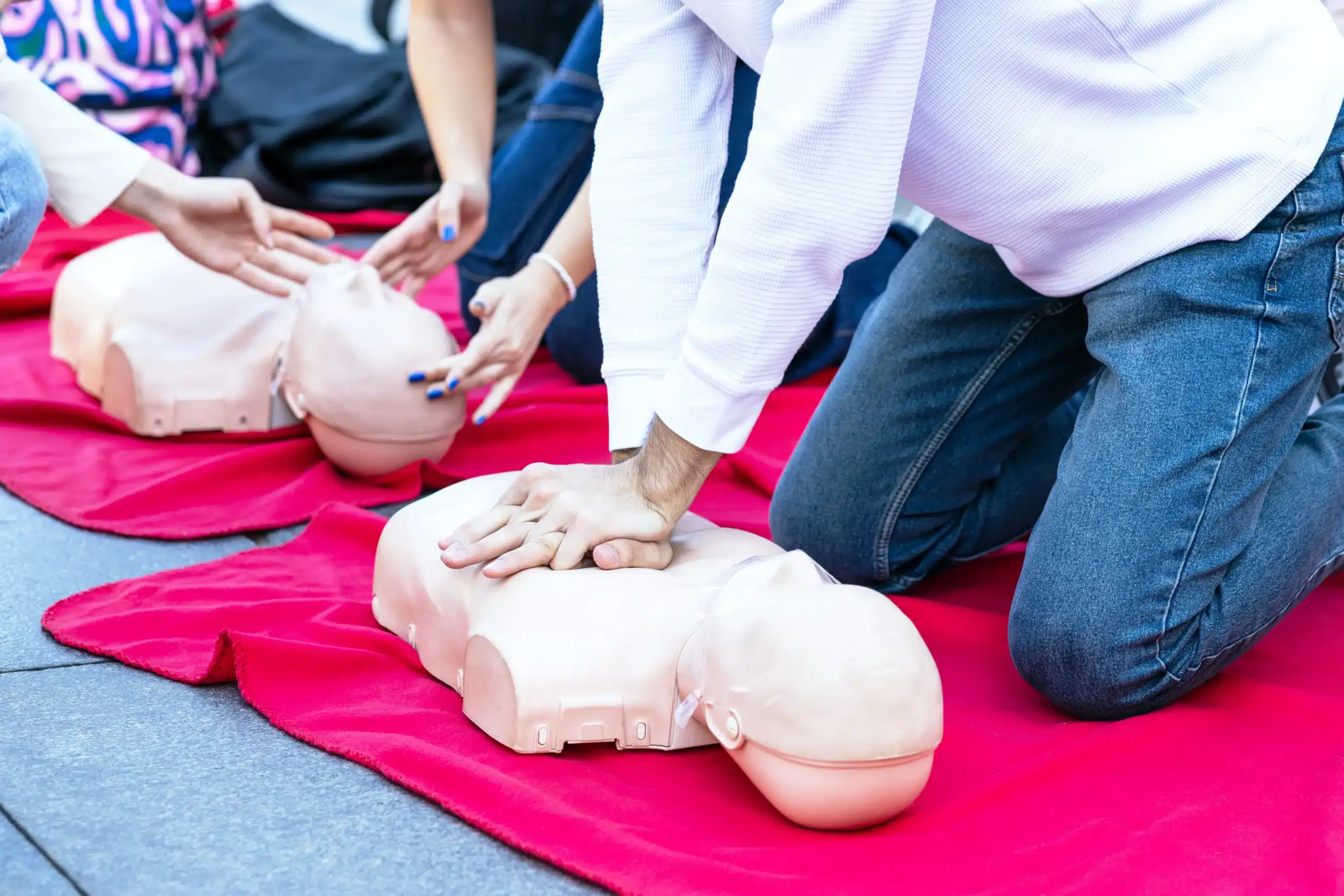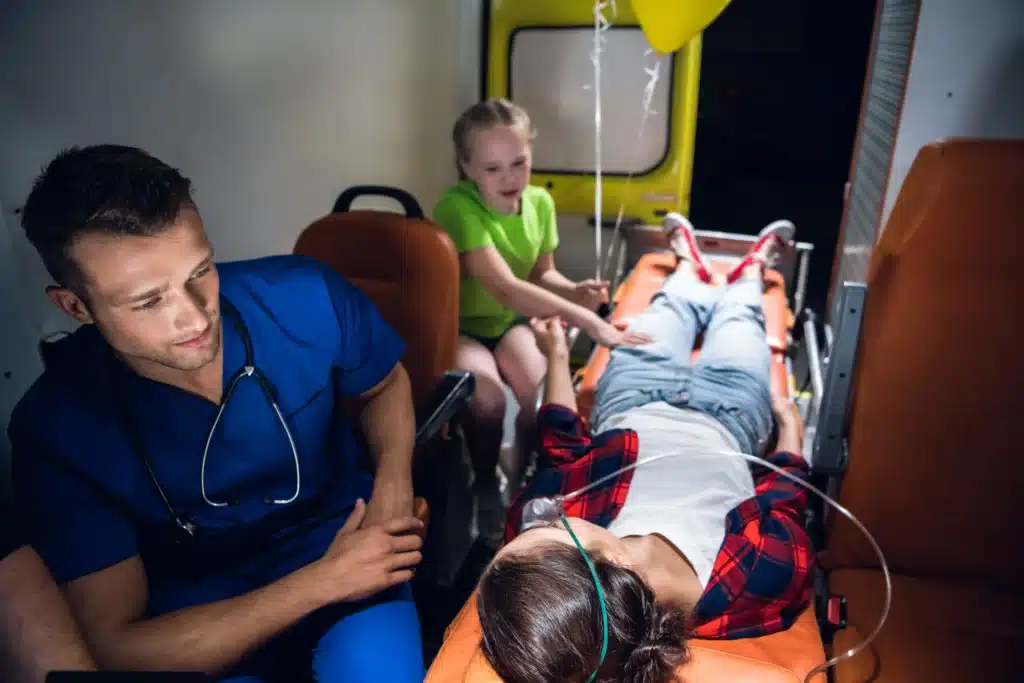Working in healthcare often means balancing demanding schedules with ongoing professional development. If you’re looking for a flexible way to get your PALS certification in Richmond, HeartCode PALS might be the perfect solution. This blended learning format combines the convenience of online modules with the essential hands-on practice of in-person skills sessions. This article provides a comprehensive overview of PALS HeartCode in Richmond, including what the course entails, how it works, and where to find reputable training providers in the area. We’ll also discuss the cost, time commitment, and long-term benefits of this valuable certification.
Key Takeaways
- HeartCode PALS blends online learning with hands-on skills: Study the course material at your own pace online, then demonstrate your skills in a practical session with an AHA Instructor. This flexible format accommodates busy schedules while ensuring you receive comprehensive training.
- Consider the overall investment and long-term benefits: Factor in course fees and any additional costs for skills sessions. Earning your PALS certification demonstrates your commitment to high-quality patient care and can open doors to career advancement.
- Stay proficient after earning your certification: Regularly review key concepts and practice your skills to maintain your expertise. Look for continuing education opportunities and stay updated on the latest AHA guidelines to ensure you’re always prepared to provide the best possible care.
What is HeartCode PALS?
HeartCode PALS is the American Heart Association’s (AHA) blended learning approach to Pediatric Advanced Life Support. It combines online learning with hands-on skills practice and testing. This format makes high-quality resuscitation education more accessible to healthcare providers. The flexibility of HeartCode PALS allows students to complete the online portion at their own pace, which is especially helpful for those with busy schedules or varying levels of experience.
Blended Learning Explained
HeartCode PALS uses a blended learning format, merging online modules with in-person instructor sessions. This method creates a more engaging learning experience and ensures consistent training quality across different organizations. The online portion uses adaptive learning techniques, meaning the course adjusts to each student’s learning pace. This personalized approach makes the material accessible to everyone, regardless of their background. You can explore the advantages of blended learning through resources like Laerdal Medical’s HeartCode overview.
Key Components
The HeartCode PALS course covers the same science-based material as traditional PALS courses, ultimately leading to the same AHA PALS Course Completion Card. This ensures that participants receive equivalent training and credentials, regardless of their chosen learning format. HeartCode Complete offers additional flexibility by allowing students to access training through various platforms, including learning management systems. This streamlined approach makes it easier to integrate the course into existing training programs.
HeartCode PALS vs. Traditional PALS
Choosing the right PALS certification course often comes down to two main options: HeartCode PALS and traditional, classroom-based PALS. Both result in the same American Heart Association certification, but their learning styles differ. This section clarifies those differences to help you decide which format best suits your needs.
Flexibility and Self-Pacing
HeartCode PALS offers a significant advantage: flexibility. The online portion lets you learn at your own pace, pausing, reviewing, and repeating modules as needed. This self-directed format accommodates busy schedules and different learning styles. Traditional PALS courses, while valuable for in-person interaction, follow a fixed schedule that may not work for everyone. Laerdal Medical highlights this flexible delivery as a key benefit of HeartCode’s blended learning.
Skills Assessment
Both HeartCode PALS and traditional PALS include a skills assessment. With HeartCode PALS, you complete the online modules, then schedule an in-person skills session with an AHA Instructor to demonstrate your practical skills. Traditional PALS integrates skills practice throughout the course. Resources like EmPOWERED to Serve explain the various PALS course options, allowing you to choose between a classroom-based course or the blended learning style of HeartCode PALS.
AHA Certification Benefits
Whether you choose HeartCode PALS or the traditional format, you receive the same nationally recognized AHA PALS Certification upon successful completion. This certification validates your pediatric advanced life support knowledge and skills, an essential credential for healthcare providers caring for infants and children.
Find HeartCode PALS Courses in Richmond
Finding the right PALS certification course can be tricky. To simplify your search, I’ve compiled a list of reputable training providers in the Richmond area, offering options for various learning styles and schedules.
Safety Training Seminars
Safety Training Seminars offers American Heart Association certified courses in several locations, including the greater Richmond area. While their main office is in San Pablo, they offer classes in over 60 Northern California cities. Known for convenient scheduling and a low price guarantee, they are a solid choice for quality training at a competitive price. Review their course schedule for upcoming PALS courses and contact their customer service team with any questions.
Code One CPR Training
Code One CPR Training in Richmond, VA, provides AHA-certified CPR training using a blended learning model. This combines online learning with in-person skills sessions, offering flexibility for busy professionals. Learn the material at your own pace online, then demonstrate your skills in a hands-on session. Contact Code One directly for information on HeartCode PALS course availability.
Health Educators, Inc.
Health Educators, Inc., in Richmond, VA, offers a wide selection of CPR and First Aid classes, including PALS certification. Their focus is on practical training, giving participants the skills and confidence to handle real-life emergencies. Contact Health Educators, Inc. to learn more about their PALS courses and schedule.
Center for Trauma & Critical Care Education (VCU)
If you’re looking for a university-affiliated program, the Virginia Commonwealth University Center for Trauma & Critical Care Education (VCU) offers several PALS courses. Known for high-quality instruction and experienced instructors, VCU’s reputation makes their PALS certification a valuable asset. Visit their website or contact them for details on course dates, registration, and prerequisites.
Cost and Value of HeartCode PALS
Understanding the investment for your HeartCode PALS certification is essential. This section breaks down the costs and highlights the long-term value.
Course Fees and Materials
The HeartCode PALS course typically costs around $230, covering your digital materials. This often includes access to the online learning modules and any associated ebooks or resources. Check with your chosen provider, like Safety Training Seminars, for specific pricing and included materials.
Additional Expenses
While the initial fee covers the core components, factor in potential additional expenses. You’ll need a hands-on skills session with an AHA Instructor, which might have a separate fee. Inquire about the total cost when you register for a course. Some providers require access to the HeartCode PALS online portion 72 hours before your skills session, so plan accordingly.
Long-Term Benefits
Earning your HeartCode PALS certification is a valuable investment. The HeartCode blended learning approach combines online learning with hands-on practice. This comprehensive training equips you to respond effectively in pediatric emergencies. The certification, valid for two years, demonstrates your commitment to high-quality care and is often a requirement for healthcare professionals.
HeartCode PALS Structure and Duration
Understanding the structure and time commitment of the HeartCode PALS course will help you prepare and schedule your training effectively. This blended learning approach combines online coursework with a hands-on skills session.
Online Portion
The HeartCode® PALS course begins with an online cognitive portion. You’ll work through interactive modules, case studies, and simulations at your own pace, covering essential concepts and protocols for pediatric advanced life support. This self-directed learning allows you to focus on areas where you need more practice and review material as needed. You can find more information about the HeartCode program on the American Heart Association website. After completing the online portion, you’ll receive a certificate of completion, which is required for the in-person skills check-off.
Skills Assessment
The skills assessment portion of the HeartCode PALS course brings your online learning to life. This in-person session allows you to demonstrate your proficiency in the skills you learned online. You’ll work with an AHA Instructor using voice-assisted manikins and receive real-time feedback. This hands-on experience, offered by providers like Safety Training Seminars, ensures you’re confident and prepared to apply your knowledge in real-world scenarios. The skills session requires a completion certificate from the online portion, so be sure to finish that first. For a deeper dive into PALS training, resources like VCU’s Center for Trauma & Critical Care Education offer valuable insights.
Time Commitment
So, how much time should you set aside for the HeartCode PALS course? The online portion typically takes between six and nine hours to complete, depending on your existing knowledge and clinical experience. Some learners may finish faster, while others might need a bit more time. The in-person skills session is typically scheduled separately and takes a few hours. It’s best to check with your chosen training center for specific scheduling details. More information about the time commitment for the online portion can be found in the Star CPR FAQ.
Prerequisites and Target Audience
This section clarifies who should consider HeartCode PALS training and what you need to know before getting started.
Who Should Take HeartCode PALS?
HeartCode PALS is designed for healthcare providers who regularly encounter pediatric emergencies. This typically includes professionals working in emergency rooms, intensive care units, and emergency medical services. If you work in a setting where you might respond to life-threatening situations involving infants and children, HeartCode PALS is highly relevant. Think doctors, nurses, paramedics, respiratory therapists, and other specialized healthcare personnel. The training provides the knowledge and skills to confidently manage these critical situations. For those working with children in other capacities, such as childcare providers, EMSA Child Care Health & Safety training may be a more appropriate option.
Required Knowledge and Skills
Before starting HeartCode PALS, you should have a solid foundation in basic life support. Familiarity with electrocardiogram (ECG) interpretation is also essential, as you’ll be analyzing heart rhythms in various pediatric scenarios. A working knowledge of resuscitation medications used in pediatric emergencies is also helpful. This prior knowledge will allow you to fully grasp the advanced concepts presented in the PALS course. If you need a refresher on BLS, check out our BLS course options. Our low price guarantee ensures you’re getting the best value for your training.
BLS Certification Importance
A current BLS Provider certification is a mandatory prerequisite for taking HeartCode PALS. You’ll need to present proof of your valid BLS certification before beginning either the online portion or attending a skills session. This requirement ensures you have the fundamental life-saving skills necessary to build upon in the PALS curriculum. We offer CPR and First-Aid courses in San Pablo if you need to obtain or renew your BLS certification. Contact us with any questions.
Overcome PALS Certification Challenges
Getting your PALS certification is worthwhile, but it does come with challenges. Don’t worry, most are easily overcome with some planning and the right approach. Let’s break down some common hurdles and how to address them.
Time Management Strategies
One of the biggest obstacles for busy healthcare providers is finding time for PALS training. Juggling work, family, and other commitments can make scheduling a course seem impossible. Look for providers like Safety Training Seminars that offer courses in over 60 Northern California cities, making it easier to find a class near you. Consider online or blended learning options, such as HeartCode PALS, which offer more flexibility and allow you to complete the coursework at your own pace.
Mastering Material
PALS covers a lot of critical information, from pediatric physiology to complex resuscitation scenarios. It’s understandable to feel overwhelmed by the volume of material. One effective strategy is to break the content into smaller, manageable chunks. Focus on understanding the underlying principles rather than memorizing everything. PALS resources can provide further guidance and clarify any confusion. Don’t hesitate to ask your instructor for clarification or support. They are there to help you succeed.
Maintaining Proficiency
Your PALS certification is valid for two years, but maintaining proficiency requires ongoing effort. Regularly review key concepts, especially those related to airway management, and practice your skills. Consider attending refresher courses or workshops to stay up-to-date with the latest guidelines and best practices. Consistent practice and review will not only help you maintain your certification but also ensure you’re prepared to provide the best possible care to your young patients.
Prepare for Your HeartCode PALS Course
Getting ready for your HeartCode PALS course can make all the difference in how confident you feel going in. This blended learning style, combining online modules with hands-on skills practice, offers flexibility but also requires a proactive approach. Here’s how to prepare:
Recommended Resources
The American Heart Association (AHA) website is a great starting point, offering tons of information on PALS courses, including materials and the latest guidelines. Familiarize yourself with the AHA’s PALS resources before you begin. Laerdal Medical, which partners with the AHA, provides the HeartCode platform. Checking out their HeartCode learning information can give you a clearer picture of what to expect from the online portion.
Tips for Success
Planning ahead is essential for a positive HeartCode PALS experience. Review the course content and set aside dedicated study time. Since the online portion is self-paced, create a realistic schedule to complete the modules before your in-person skills session. For more on fitting the course into a busy schedule, these PALS certification tips are helpful. Regularly reviewing pediatric physiology and airway management protocols will be key to mastering the material.
Practice and Simulations
HeartCode PALS uses simulations to reinforce what you’re learning and build your skills. Take advantage of these practice opportunities in the online modules. The HeartCode Complete program from RQI Partners emphasizes the value of combining online learning with hands-on practice. This approach ensures you’re not just memorizing facts, but actually understanding how to apply them. You might also want to supplement your online learning with extra practice scenarios to really solidify your skills before the in-person assessment.
Maintain Your HeartCode PALS Certification
Once you’ve earned your PALS certification, staying current is key to providing the best possible care. Here’s how to maintain your HeartCode PALS credentials:
Renewal Requirements
PALS certification is valid for two years. Instructors must teach at least four PALS courses within that two-year period to renew their credentials. This requirement helps instructors stay proficient and up-to-date on the latest guidelines. Healthcare providers who aren’t instructors can recertify by completing a PALS renewal course before their current certification expires. Check with your certifying organization for specific renewal requirements.
Continuing Education
Even if recertification isn’t on your immediate horizon, continued learning is crucial for any healthcare provider. HeartCode Complete, offered by RQI Partners, provides a flexible way to complete BLS, ACLS, or PALS training at your own pace. Accessible through various learning management systems, including RQI 1Stop, it’s designed to fit easily into a busy schedule. Regularly reviewing materials and practicing your skills helps maintain proficiency and confidence.
Stay Updated with AHA Guidelines
The American Heart Association (AHA) regularly updates its guidelines to reflect advancements in pediatric emergency care. Staying informed about the latest AHA guidelines is essential for providing the highest quality care. All PALS courses, including HeartCode and traditional formats, follow these guidelines, ensuring consistent training and a standardized AHA PALS Course Completion Card. This uniformity helps maintain a high standard of care across the board.
Related Articles
- PALS Certification in Richmond: Your Complete Guide – San Pablo CPR Classes
- PALS Certification in Berkeley: Your Comprehensive Guide – San Pablo CPR Classes
- AHA PALS Classes in San Pablo, CA – San Pablo CPR Classes
- American Heart Association Course – San Pablo CPR Classes
- ACLS Courses in Oakland: Your Complete Guide – San Pablo CPR Classes
Frequently Asked Questions
What exactly is blended learning in the context of HeartCode PALS? HeartCode PALS blends online learning with a hands-on skills session. You’ll learn the course material online at your own speed and then demonstrate your skills in person with an AHA Instructor. This approach offers flexibility while ensuring you get practical experience.
How does HeartCode PALS differ from a traditional PALS course? The main difference lies in the delivery method. HeartCode PALS offers the flexibility of online learning, while traditional PALS follows a fixed classroom schedule. Both formats cover the same material and lead to the same AHA PALS certification. The choice depends on your learning style and schedule.
What are the prerequisites for taking HeartCode PALS? You must have a current BLS Provider certification before starting HeartCode PALS. A good understanding of basic life support, ECG interpretation, and common resuscitation medications is also recommended. This foundation helps you grasp the advanced concepts covered in PALS.
How long does it take to complete the HeartCode PALS course? The online portion typically requires six to nine hours, though it varies depending on your learning pace. The in-person skills session takes a few additional hours and is usually scheduled separately.
How can I ensure I maintain my PALS certification and stay up-to-date? Your PALS certification is valid for two years. To maintain your skills, regularly review the material, especially key concepts like airway management. Consider refresher courses or workshops to stay current with the latest AHA guidelines and best practices. Continuing education resources, like HeartCode Complete, can also help you stay proficient.
